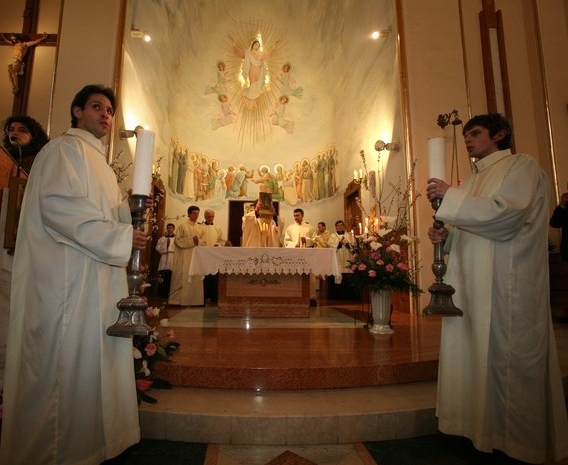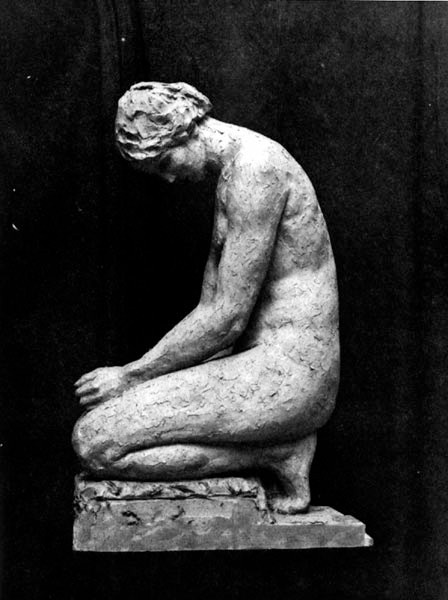 16 - The Meaning of Public and Private
16 - The Meaning of Public and Private
We often hear it said that such and such a person is a "public" man. For instance, the mayor of the city, the members of congress, the president of the United States, are public men. They hold public offices, which give their acts a public character. Thus, the appointments made by the mayor, the votes cast in congress, the messages of the president, are all called public acts or public documents. They are done for and in the name of the people, and are, therefore, of interest to the "people," for "public" originally meant what concerned the people. At the same time, public officials may perform other actions in their own name which do not concern the people. Such actions are called "private," because the Latin word "privatus" meant "apart from the state," or "peculiar to an individual." Thus, what the president eats for dinner, or what kind of music the mayor may like, concerns only the men themselves, and are not public but private affairs. Hence, we see a man may have two characters, a public character and a private character. In his private character he stands only for himself; but as a public character he represents the people of the town or state or nation, as the case may be.
17 - Public and Private WorshipNow, the Church is a society, just as the state is a society. As the state has officials who stand for it and perform actions in its name, so in religion there are officers who stand for the people and perform acts in the people's name. When our Lord Jesus Christ founded His Church He appointed public officials in it, and to them He gave authority to speak in His name and in the name of His society. These officials are called bishops and priests. As in the case of the state officials, bishops and priests have a private character, and may perform acts which are private acts, but in their public character, that is, as bishops and priests, as officers of the Church, their actions are no longer private but public. Now, the worship which any private man, or any bishop or priest, in his private character pays to God, is "private worship," but the worship which is offered in the name of the society called the Church by its properly constituted officers is "public worship."
18 - Public and Private SacrificeAs we have seen, the two great elements of worship are prayer and sacrifice. Formerly, every one offered sacrifice by his own hands and in his own name. Thus we read how Cain and Abel offered private sacrifice. In time, however, this privilege was restricted, and by the Old Law private sacrifice was abolished among the Jews. Hence forward it was to be a public act, which should be performed only by public officers called priests. Our Lord Jesus Christ finally abolished all sacrifices except that which was offered by Himself. In the Catholic Church, therefore, there is only one public sacrifice, in which our Lord represents the whole human race, and offers Him self in their behalf. In the Sacrifice of the Cross there is but one Priest and One Victim, the incarnate Son of God.
19 - Bishops and PriestsThe sacrifice of our Lord is continued in the Church by the ministry of men. The very same sacrifice offered once is set forth in commemoration of Him. This is done by His command, through His power, and in His name by His priests. These priests are not like the priests of the Old Law, each for himself, but they are priests because they share in the everlasting priesthood of Jesus Christ. They do not offer a sacrifice distinct from His; they renew in a real but mystical manner His one sacrifice. Hence, at the Consecration in the Mass they do not say, "This is the body of Christ," but "This is My body"; nor "This is the blood of Christ," but "This is My blood." They are then Christ's representatives, and they have no power except inasmuch as they share in the priesthood of Jesus Christ. Now, in the Catholic Church we find there are two classes of men who have this power of offering Christ's sacrifice. They are called bishops and priests. Bishop comes from a Greek word meaning "overseer," and priest comes from a Greek word meaning "elder." The priest ministers to the congregation; the bishop is the overseer of both. There is, however, a greater and an essential difference between them. Our Lord shared His priesthood with His Apostles, but the Apostles gave the office to some so that they could offer the sacrifice, and to others so that not only could they offer the sacrifice, but could communicate the same power to other men. Now, a priest has the power of offering sacrifice, but he cannot give that power to any one else. A bishop, however, has the very same power as the priest to offer sacrifice, and in that respect he has no more power than the priest, but he enjoys the faculty, in addition, of giving his power to others. In short, a priest can offer sacrifice only, but a bishop can offer sacrifice, and, in addition, make other priests and bishops.
 20 - Public and Private Prayer
20 - Public and Private Prayer
Unlike sacrifice, public and private prayer exist side by side in the Church. Each one still continues to pray in his personal capacity. In his private devotions no one comes between him and God. It is well, however, to notice here that even when a number of people are gathered together in prayer this fact does not make the prayer public, although such prayer be recited aloud and in a public place. It is only when the prayer is offered by the proper official in the name of the Church that it becomes public prayer. Even though the people be not present, such a prayer is still public, just as the president's signature to an act of Congress is a public act, although affixed in the privacy of his closet.
21 - Only One Public PrayerAs in the United States, the legal officials of the government are the only persons who can perform public actions in the name of the people, so the proper officials of the Church are the only persons who can offer public -prayer. It would be a crime against the government of this country to attempt to perform the public acts of public officials if one does not hold the proper office. In the same way it is an act of rebellion against the Church for any one not being a lawfully constituted official to attempt to order or hold public prayer. And as those people who would uphold the enemies of the United States are guilty of treason, so it is treason to the Church for any of her children to give aid and comfort to intruders into Church offices. For this reason Catholics are forbidden to attend and take part in public prayers celebrated without the authority of the Church. Hence we must not go to non-Catholic services to take part or to pretend to take part in them. Those services may be very beautiful and good in themselves, and very profitable for non-Catholics, but we must not share in them. English laws or French laws may be very good in them selves, and very serviceable to Englishmen or French men, but should an American proclaim the authority of English law or of French law in the United States he would be called a rebel, and rightly so. In like manner the Catholic who acknowledges the authority of non-Catholic denominations by joining in their public services is guilty of treason to his Church.
- taken from The Mass, by Father Peter Christopher Yorke